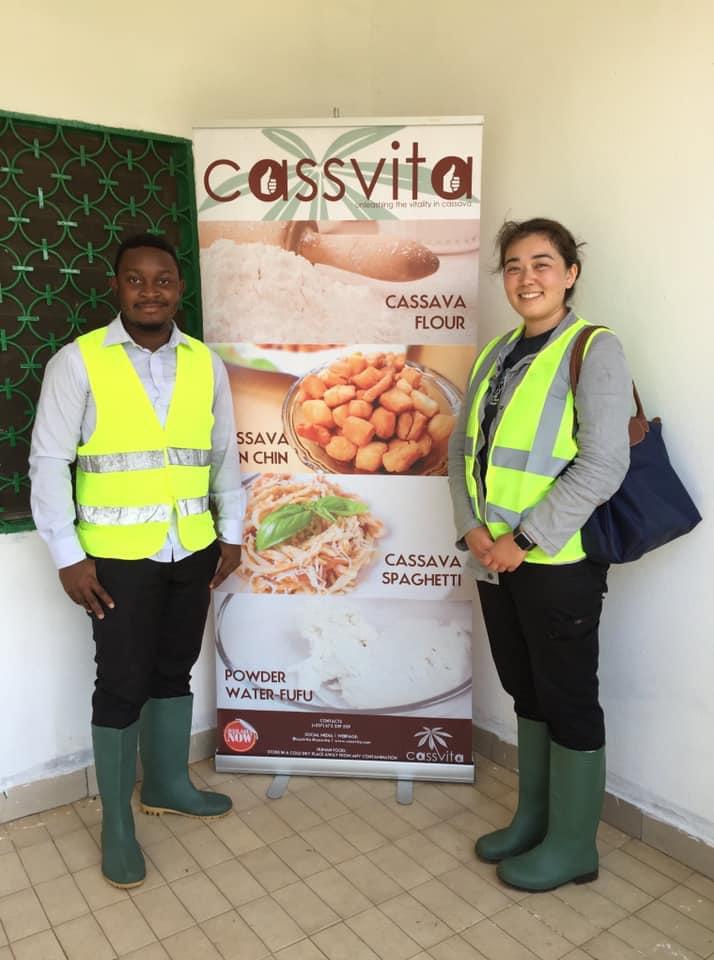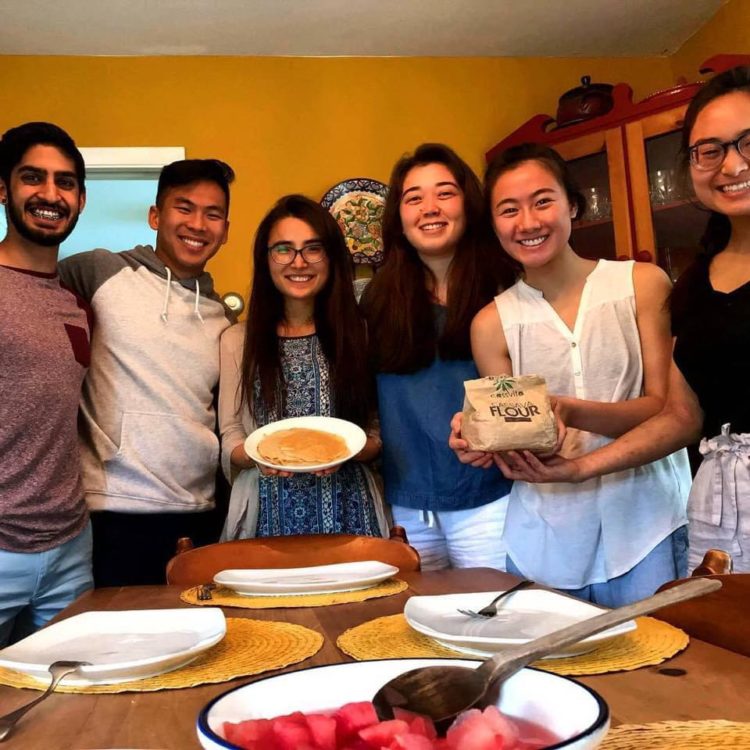Pelkins Ajanoh is from Cameroon and entered MIT as a transfer student, where he became president of the MIT African Students’ Association. In his junior year, Pelkins ran a project on different image detection algorithms for driverless cars. Similar to many mechanical engineering students, he took his research project forward by experimenting outside the classroom.
He interned with General Motors over the summer, and they placed him on the driverless car team. At GM, he worked on similar algorithms and key problems related to driverless cars. He actually ended up filing a patent at the end of his internship for a new radar calibration method he worked on.
After reaching this exciting milestone, Pelkins was energized to go out and solve problems of his own, in Cameroon. “This is a feeling other students at MIT get,” he said in a recent interview. “After the struggle and success with things you realize you’re capable of doing while at the Institute, you gain more real confidence and you feel that you can truly accomplish or learn anything.”
Pelkins grew up outside Yaoundé, his country’s capital city. He describes his family as middle-class, by Cameroonian standards. His parents worked in business and education, and his education was an absolute priority. They sent him to the best schools they could afford. Growing up, he felt deeply supported by his family, and because of this, he never thought about class as a barrier to success, even though some of his classmates in Cameroon came from wealthier backgrounds.
After initially attending school at the University of Texas at Arlington, Pelkins transferred to MIT for his sophomore year. Back home, his best friend Nembu stayed in Cameroon, and attended university there at the National Advanced School of Public Works. They had known each other since they were children. They grey up together, and playfully competed in school. “Sometimes he would be number 1 and sometimes I would be number 1,” remembers Pelkins. After Pelkins left for the U.S., they kept in close contact despite the distance.
As Pelkins became more excited about doing something in Cameroon, they settled into a routine. Pelkins would call up Nembu with an idea, and they would work on it for a while, maybe a month or so, before setting it aside. In that initial rush, none of the ideas stuck. Pelkins realized he needed to put more thought and research into making sure his ideas were needed and important. He came to the conclusion that he needed to formally and professionally seek out an important problem to solve rather than act on moments of inspiration.
He started reading many academic journal papers that had been published by Cameroonian universities. It was during this dive into research that Pelkins noticed a trend: cassava. Cassava was everywhere in Cameroonian research, but Pelkins, having very little agricultural background in his family, had failed to realize that the cassava plant is incredibly important to Cameroon, and that it was farmed ubiquitously. Essentially, cassava was integral to daily life in Cameroon and in other African countries.
“It’s funny,” Pelkins said during the interview, “somehow you can learn more from looking from the outside! When you are in the middle of problem, sometimes you can’t even tell that it’s there.”
Cassava has many desirable properties. It is a starch-heavy plant that is gluten free, and very versatile. However, the methods used to process cassava in Cameroon were still very traditional, as the plant is used on a small scale for cooking and eating. Pelkins wondered if there was a way for cassava to be processed in mass quantities, as the plant itself spoils rapidly after harvesting.
When Pelkins talked to Nembu, Nembu decided to do his own research. Nembu was beyond ecstatic with the findings from his research. Within a month, Nembu had rented an apartment that would be used as office space for the budding entrepreneurs. “I get a lot of credit,” Pelkins says, “but this project would not be possible without Nembu.” The two friends agreed that Nembu would work on the initial research, and Pelkins would search for capital, given the many funding opportunities at MIT.
Pelkins secured some funding from MIT Sandbox, which provides seed funding for student-initiated entrepreneurship ideas, as well as mentoring from within MIT and from a broad network of committed partners. Nembu decided to focus on the project full time, and they called their new venture CassVita.
As they secured additional funding, they hired lab technicians in Cameroon, who worked on processing the cassava into a state that would not easily spoil. After roughly eight months of trial and error work, the team found a way to process cassava into a powder just like wheat flour, except it was gluten-free and non-allergenic. They felt they’d found the perfect substitute to flour.

Pelkins graduated from MIT in 2018, with a bachelor’s degree in Mechanical Engineering. CassVita, which is now empowering over 300 farmers in Cameroon, has succeeded in commercializing its flour product, launching in the West African market, the European market, and recently also the American market. Continuing to leverage the solid MIT connection, that have now hosted a total of four MIT interns.
To find out more about CassVita, go to their online boutique


